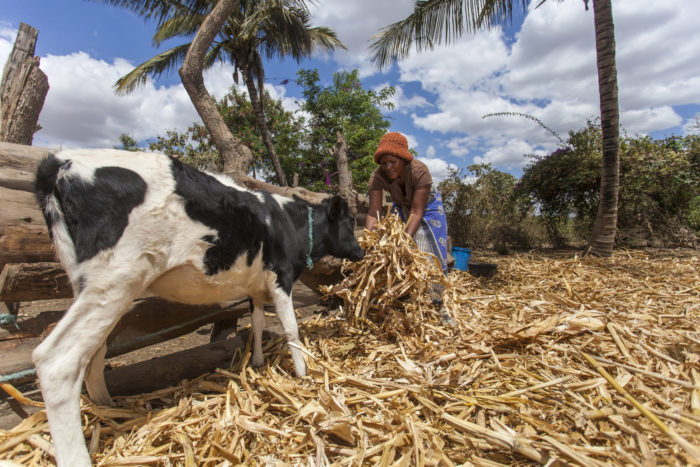As part of the Regional Support Program for Farmers’ Professional Organizations (PRAOP-3), a capacity-building workshop took place from May 8 to 11 in Lomé, Togo, at the Hotel du 2 Février. The event marked the official launch of 23 field projects aimed at promoting youth employment in local milk value chains in West Africa and Chad.
West Africa is characterized by a young and mobile population, whose migratory flows are fueled by poverty, climate change, and insecurity. Most of these young people struggle to find decent and well-paid employment, particularly in the West African rural economy, which is primarily structured around poorly equipped family farms heavily dependent on uncertain rainfall.
To reverse this trend and enhance the contribution of young people to more efficient food systems, ECOWAS-CEDEAO, with financial support from the Swiss Confederation, has implemented the PRAOP-3. The aim is to help reduce rural exodus and uncontrolled youth emigration by promoting their professional integration into the agro-sylvo-pastoral and fisheries sector and into agri-food value chains.
Through the Regional Agency for Agriculture and Food, ECOWAS Agriculture has used funds from the Directorate for Development and Cooperation to finance innovative local initiatives. The call for project proposals titled “Promotion of youth employment in local milk value chains in West Africa and Chat” resulted in the selection of 23 projects led by farmers’ professional organizations and breeders and agro-pastoral associations.
These projects, covering 10 ECOWAS member states and Chad, aim to create jobs or young people in local milk value chains.
The workshop helped to strengthen the project holders’ technical, financial, and accounting management skills. Participants shared the content of their projects, formed experience-sharing networks ,and discussed the monitoring and evaluation system for activities.
At the end of the workshop, and official launch of the projects was carried out by the ECOWAS Department of Economic Affairs and Agriculture. Project holders now have a good understanding of the administrative and financial management procedures for projects funded by ECOWAS and master the requirements for engagement and justification of expenses required for the execution of these projects. Furthermore, technical and financial partners have a better understanding of the initiatives to be financed for promoting youth employment in local milk value chains in West Africa and Chad.
This workshop marks the beginning of a new era of opportunities for young people in West Africa and Chad. Thanks to these innovative projects, ECOWAS and its partners hope to stimulate economic growth, employment, and f0od security in the region, while supporting the resilience of agricultural systems in the face of climate change.

